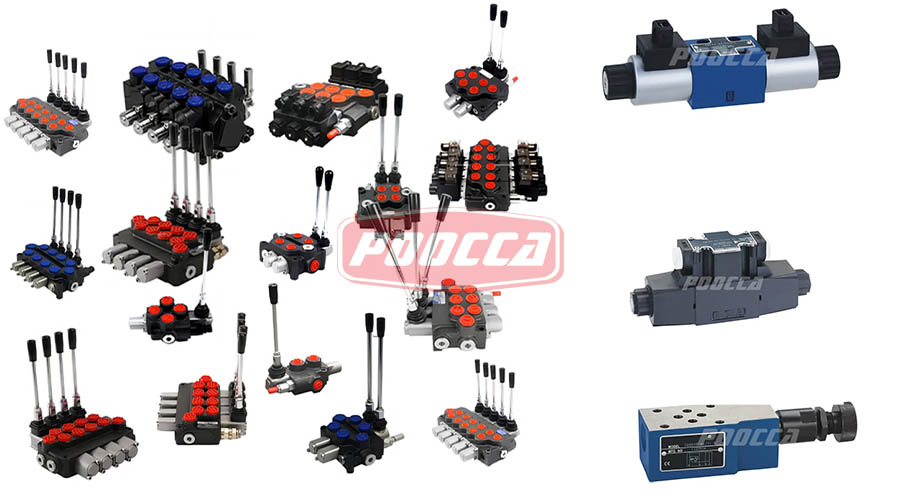Hydraulic control valves are essential components of hydraulic systems. They regulate and control the flow of hydraulic fluid in the system. The valves are responsible for controlling the direction, pressure, and flow rate of the fluid. Hydraulic systems are widely used in various industrial applications such as manufacturing, construction, agriculture, and mining. This article will discuss hydraulic control valves and their advantages in detailed manner.
Hydraulic Control Valves
A hydraulic control valve is a mechanical device that is designed to regulate the flow of hydraulic fluid in a hydraulic system. The valve control system is operated via an actuator, which is responsible for actuating the valve.
Types of Hydraulic Control Valves
There are various types of hydraulic control valves depending on the intended application. The following are some commonly used types of hydraulic control valves:
1. Pressure Control Valves:
Pressure control valves, as the name suggests, are designed to control the pressure in the hydraulic system. These valves are used to regulate the pressure at a specific point in the hydraulic circuit.
2. Flow Control Valves:
Flow control valves regulate the flow rate of hydraulic fluid in a hydraulic system. They are used to control the speed of hydraulic actuators.
3. Direction Control Valves:
Direction control valves are used to control the direction of fluid flow in a hydraulic circuit. These valves are used to control the actuation of hydraulic actuators such as cylinders and hydraulic motors.
4. Proportional Control Valves:
Proportional control valves regulate the flow of hydraulic fluid based on an input signal. These valves are used in applications that require precise control of hydraulic actuators such as robotics and CNC machines.
Advantages of Hydraulic Control Valves
1. Precise Control:
Hydraulic control valves provide excellent control over the hydraulic system. They can control the flow rate, pressure, and direction of hydraulic fluid with very high accuracy. This level of control enables hydraulic systems to operate with maximum efficiency and precision.
2. Flexibility:
Hydraulic control valves are highly adaptable, and their functionality can be customized to meet the requirements of a specific application. They can be used to work with a wide range of hydraulic fluids and pressures. The valves can be adjusted to work at different speeds and flow rates as needed in a given application.
3. Energy Efficiency:
Hydraulic control valves are designed to operate with minimal energy input. The reduction in energy consumption results in reduced operating costs, making these valves more cost-effective in the long run.
4. Reliability:
Hydraulic control valves are generally very reliable due to their simple and rugged construction. They can withstand harsh operating conditions and require minimal maintenance.
5. Safety:
Hydraulic control valves are inherently safe to use because of their ability to provide precise control of hydraulic fluid flow. This allows users to control the movement and force of hydraulic actuators, which is essential in applications where safety is a priority.
6. Durability:
Hydraulic control valves are built to last and can withstand harsh environments. They are designed to handle high pressure and high flow rates, making them ideal for use in a wide range of industrial applications.
7. Compact Design:
Hydraulic control valves are compact in design, making them suitable for use in applications where space is limited. The small size of the valve allows it to be integrated into the hydraulic system without taking up too much space.
Conclusion
Hydraulic control valves are essential components of hydraulic systems. They regulate and control the flow of hydraulic fluid in the system, enabling precise and efficient operation of hydraulic actuators. The advantages of hydraulic control valves are many, including precise control, flexibility, energy efficiency, reliability, safety, durability, and compact design. These valves are widely used in a variety of industrial applications because of their versatility and ability to provide efficient and precise control of hydraulic fluid flow.
Hydraulic control valves include: 4WE, P40,P80,P120,ZDB,DFA,DFB,DFC
Post time: May-03-2023






